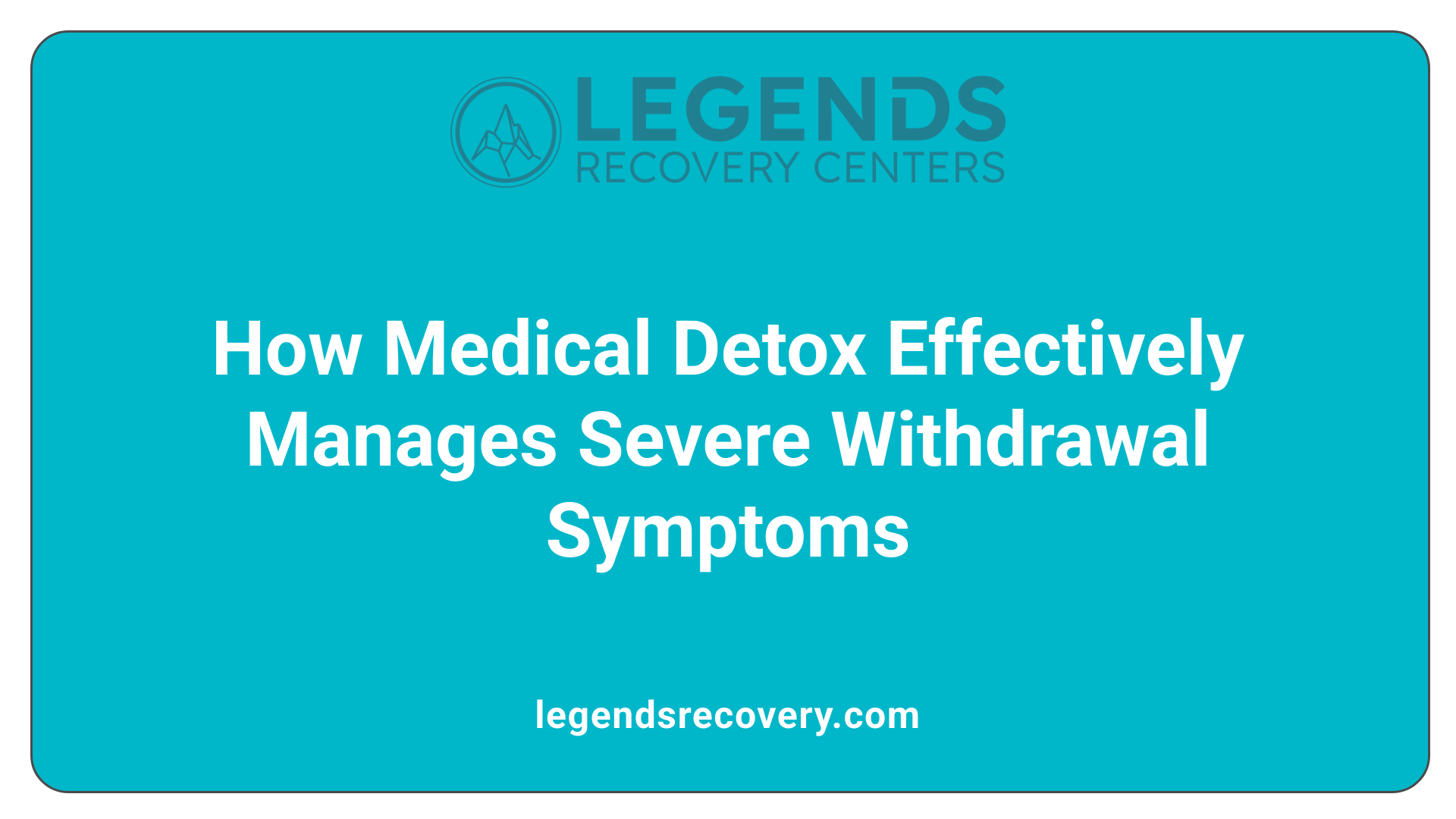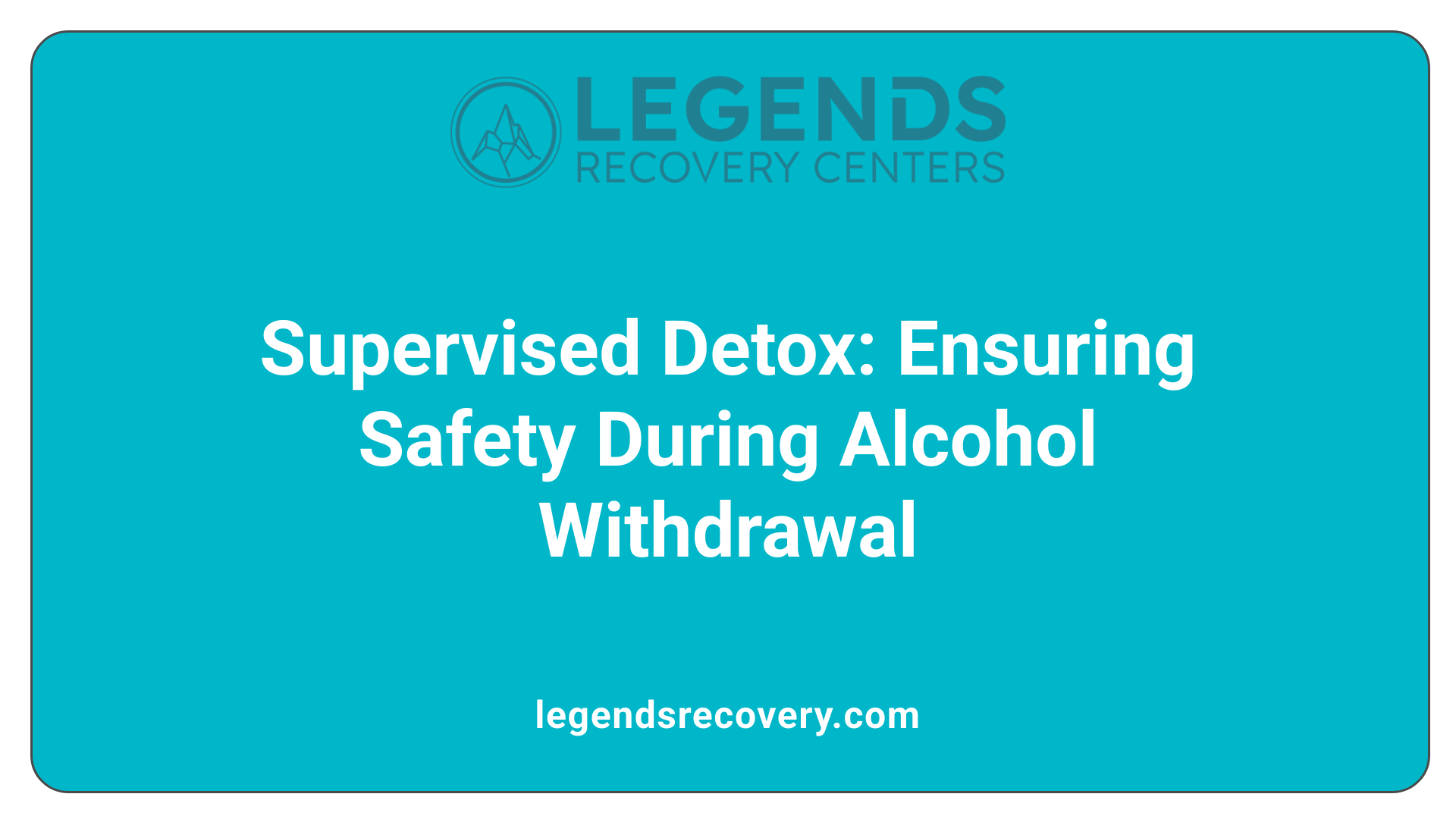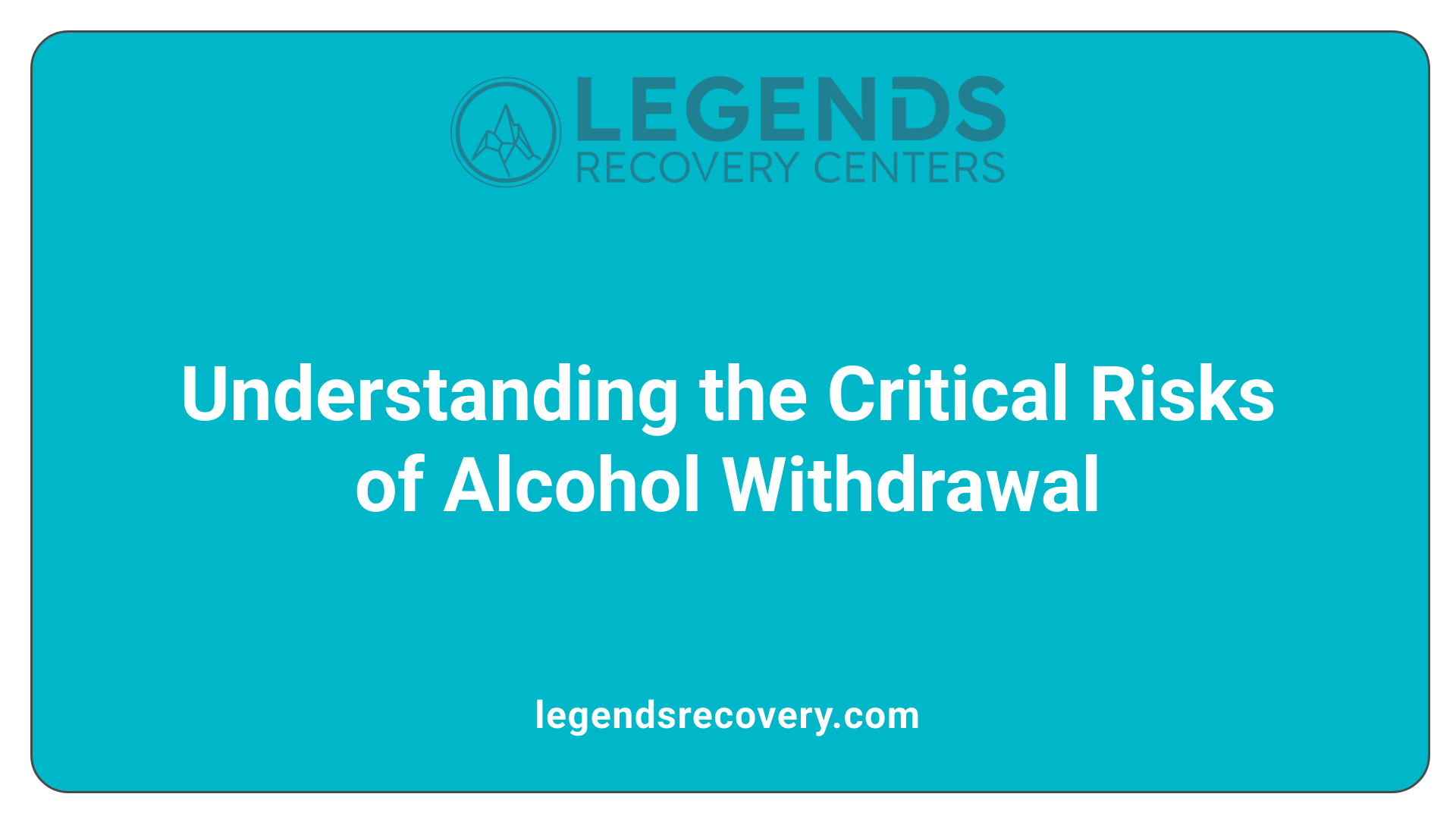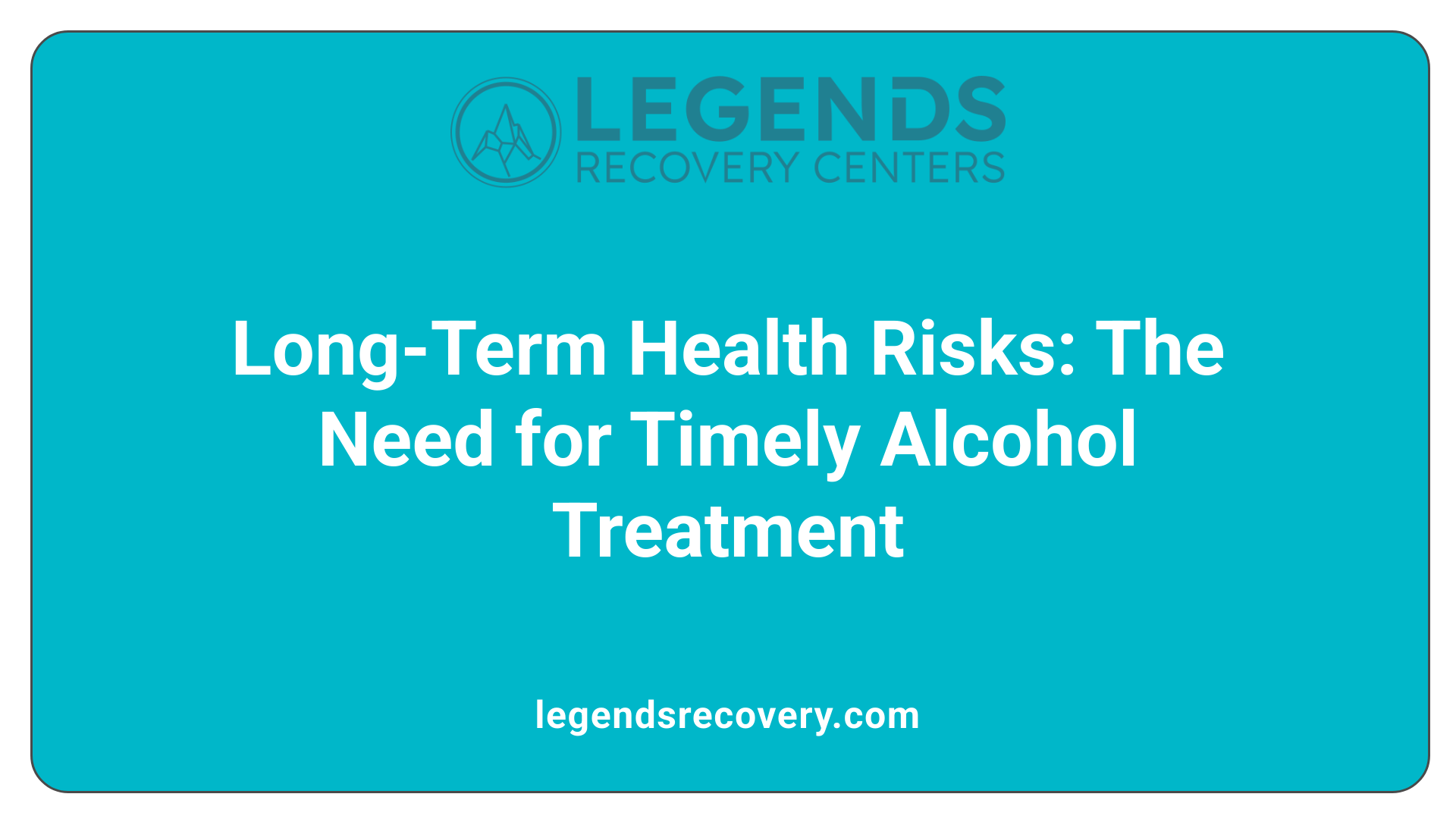Understanding the Critical Role of Medical Detox in Alcohol Withdrawal

Alcohol withdrawal syndrome (AWS) encompasses a range of symptoms from mild discomfort to severe, life-threatening conditions. Recognizing the dangers associated with alcohol withdrawal highlights the importance of professional detox services. This article explores the symptoms, risks, and the lifesaving benefits of medically supervised detox to ensure safety and successful recovery.
Alcohol withdrawal can manifest in a range of symptoms that often follow a recognizable progression. Common symptoms include nausea, vomiting, sweating, shaking or tremors, insomnia, and headaches. As the withdrawal process advances, individuals may experience anxiety, confusion, hallucinations, and increased heart rate. Severe cases can lead to seizures and delirium tremens, which involve disorientation, hallucinations, and significant autonomic instability.
Withdrawal symptoms typically begin within a few hours to a few days after stopping or reducing alcohol intake. Mild symptoms such as tremors and irritability usually appear within 6 to 12 hours. As time progresses, symptoms intensify—peak around 24 to 72 hours—and may include hallucinations, seizures, and delirium tremens.
The peak severity often occurs between 24 and 72 hours, especially in those with high levels of dependence. Without proper medical support, symptoms can worsen, leading to life-threatening complications such as seizures or delirium tremens.
In most cases, symptoms gradually improve over the following days to weeks. Mild symptoms tend to resolve within a week, but some individuals may continue to experience mood disturbances, sleep issues, and physical discomfort for weeks or even months.
Ultimately, the severity and duration of withdrawal depend on factors like the amount and duration of alcohol use, age, health conditions, and history of previous withdrawal episodes. Medical supervision is essential to monitor and manage these symptoms effectively, reducing the risk of serious health complications during detox.

Detoxification plays a vital role in safely removing alcohol from the body, especially for individuals dependent on alcohol. Under medical supervision, detox helps to regulate and monitor symptoms to prevent severe complications such as seizures, hallucinations, or delirium tremens. Healthcare professionals administer medications like benzodiazepines, which help calm the central nervous system and reduce withdrawal intensity.
During detox, supportive measures are prioritized. These include ensuring proper hydration with IV fluids, providing nutritional support to replenish depleted vitamins and electrolytes, and maintaining continuous monitoring of vital signs. These steps are essential to prevent dehydration, correct imbalances, and reduce the risk of life-threatening events.
Supervised detox also offers psychological reassurance, reducing anxiety and agitation often associated with withdrawal. Close observation allows for prompt intervention if symptoms worsen, ensuring a safer transition away from alcohol dependence.
Post-detox, ongoing therapy and medical follow-up are critical to address underlying mental health issues and prevent relapse. Overall, detoxification is a controlled process that not only alleviates physical symptoms but also sets the foundation for sustained recovery.
During alcohol detox, a combination of medications and supportive care is essential to ensure safety and reduce withdrawal symptoms. Medical medications such as benzodiazepines—including chlordiazepoxide, diazepam, lorazepam, and oxazepam—are commonly used to manage anxiety, agitation, and prevent seizures. For patients at risk of seizures or severe withdrawal, anticonvulsants like carbamazepine and valproic acid may be prescribed as alternatives or adjuncts.
Blood pressure medications, such as beta-blockers, can help control increased heart rate and blood pressure associated with withdrawal. Alongside pharmacological treatment, supportive care includes hydration with electrolytes to prevent dehydration and stabilize vital functions. Nutritional support, especially thiamine supplementation, is critical to prevent neurological complications such as Wernicke-Korsakoff syndrome.
Close medical supervision during detox is crucial, particularly for severe symptoms like hallucinations, seizures, or delirium tremens, which can be life-threatening. Healthcare professionals monitor vital signs continuously and adjust medications as needed to ensure safety.
Psychological support, counseling, and ongoing monitoring further help address emotional distress, anxiety, and prepare individuals for continued treatment. Ideally, detox should take place in an inpatient medical setting where comprehensive care can be provided, minimizing the risks associated with severe withdrawal complications.

Managing alcohol withdrawal safely requires careful medical oversight. Withdrawal symptoms can fluctuate from mild discomfort, like headaches and anxiety, to severe, such as seizures and delirium tremens — conditions that can be fatal without prompt treatment.
With continuous monitoring, healthcare providers keep a close eye on vital signs including heart rate, blood pressure, and temperature. This helps in early detection of signs indicating the onset of serious complications. In cases of moderate to severe withdrawal, medications like benzodiazepines are administered to calm the nervous system, prevent seizures, and reduce agitation. These drugs are essential tools in preventing escalation of symptoms.
Supervised detox allows for individualized care tailored to personal health history, such as previous withdrawal episodes, liver health, or existing medical conditions. This personalization minimizes risks and ensures that treatment responses are appropriate.
Moreover, professional oversight offers psychological and emotional support, which is crucial during what can be a very distressing period. Patients are more likely to complete detox successfully when they are under medical supervision.
Overall, supervision by trained medical staff dramatically decreases the likelihood of life-threatening complications and creates a safe environment to begin recovery. It provides a stable foundation for ongoing treatment and helps patients transition toward long-term sobriety.

During alcohol detox, early assessment and prompt treatment are vital to prevent the escalation of withdrawal symptoms into more severe, potentially life-threatening conditions. When an individual abruptly stops drinking after heavy and chronic use, the brain shifts from a suppressed state—due to alcohol’s effects—to a hyperexcitable state. This neurochemical imbalance can cause symptoms ranging from mild discomfort to serious complications such as seizures and delirium tremens (DTs).
Using standardized tools like the Clinical Institute Withdrawal Assessment for Alcohol–Revised (CIWA-Ar) allows healthcare providers to accurately gauge the severity of withdrawal symptoms. This assessment informs treatment decisions, guiding the appropriate use of medications such as benzodiazepines to control symptoms and prevent complications.
Inpatient care plays a crucial role, especially for those with moderate to severe symptoms or high risk factors. Hospital-based supervision provides continuous monitoring of vital signs, mental status, and hydration levels. This environment ensures immediate response to any deterioration, such as sudden seizures or confusion.
Overall, early intervention with proper assessment and medical support not only reduces the risk of severe withdrawal outcomes but also creates a safer framework for recovery. It enables tailored treatment plans that address individual needs, minimizes medical complications, and significantly improves the chances of a successful detox process.

Alcohol withdrawal can pose significant health dangers, especially if not monitored or managed properly. One of the most severe complications is delirium tremens (DTs), a state marked by hallucinations, confusion, agitation, seizures, and autonomic instability such as rapid heart rate and high blood pressure. DTs is particularly dangerous, with a mortality rate ranging from 5% to 25% if untreated.
Seizures are another critical risk, typically occurring within 24 to 48 hours after the last drink. These seizures can be life-threatening, especially if not promptly treated, and tend to become more frequent with repeated withdrawal episodes, supporting the 'kindling' hypothesis which states that each withdrawal episode may increase the severity of future ones.
Nutritional deficiencies, particularly in thiamine, can lead to Wernicke-Korsakoff syndrome. This neurological disorder manifests with symptoms such as confusion, ataxia, eye muscle paralysis, and severe memory problems, and it can be fatal without timely intervention.
On the neurochemical level, withdrawal involves a decrease in the inhibitory neurotransmitter gamma-aminobutyric acid (GABA) activity and an increase in excitatory glutamate activity. This imbalance results in CNS hyperexcitability, leading to symptoms like tremors, anxiety, hallucinations, and seizures.
Effective treatment includes the use of medications like benzodiazepines or antiseizure drugs, along with supportive measures such as vitamin supplementation and hydration. Recognizing and managing these risks early is vital to prevent serious outcomes and ensure safety during alcohol detoxification.

Immediate medical support during alcohol detoxification is vital because unmanaged withdrawal can lead to life-threatening complications such as seizures and delirium tremens (DTs). These severe symptoms typically appear within the first few days after cessation and require quick, professional intervention. Using well-established assessment tools like the Clinical Institute Withdrawal Assessment for Alcohol (CIWA-Ar) helps healthcare providers monitor symptoms accurately and decide when medication or hospitalization is necessary.
Medications like benzodiazepines are often used to manage withdrawal symptoms safely, lowering the risk of escalation to severe conditions. Continuous supervision in inpatient settings provides real-time monitoring of vital signs and mental status, ensuring that any deterioration can be addressed immediately.
Early intervention not only prevents immediate dangers but also reduces the likelihood of long-term brain damage and physical health issues. It sets the foundation for ongoing recovery, allowing psychological and medical issues to be managed effectively.
In conclusion, alcohol withdrawal presents serious dangers that require immediate and professional medical attention. From managing symptoms with targeted medications to preventing fatal complications like seizures and delirium tremens, supervised detox provides a safe pathway through a challenging process. Recognizing early signs and seeking timely intervention can significantly reduce health risks, supporting a smoother transition to ongoing recovery. Comprehensive treatment, continuous monitoring, and supportive care form the foundation of a successful detox, helping individuals rebuild their health and achieve lasting sobriety.